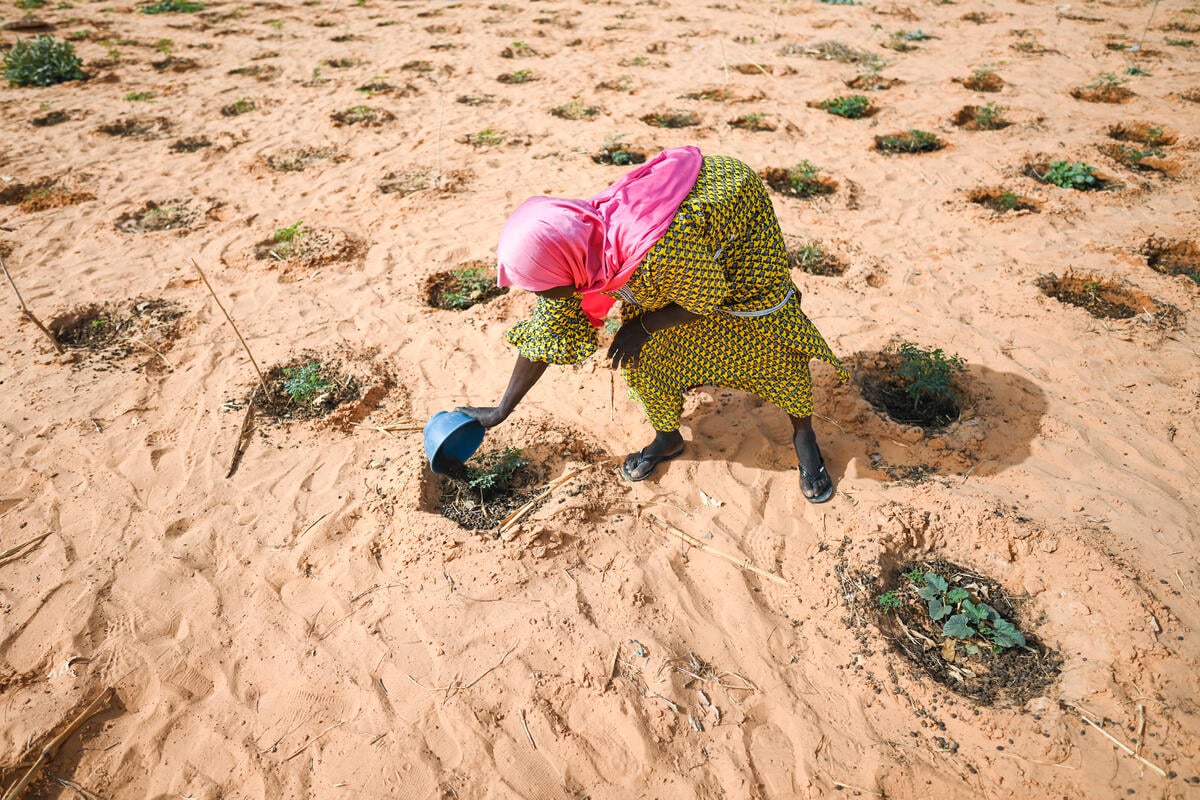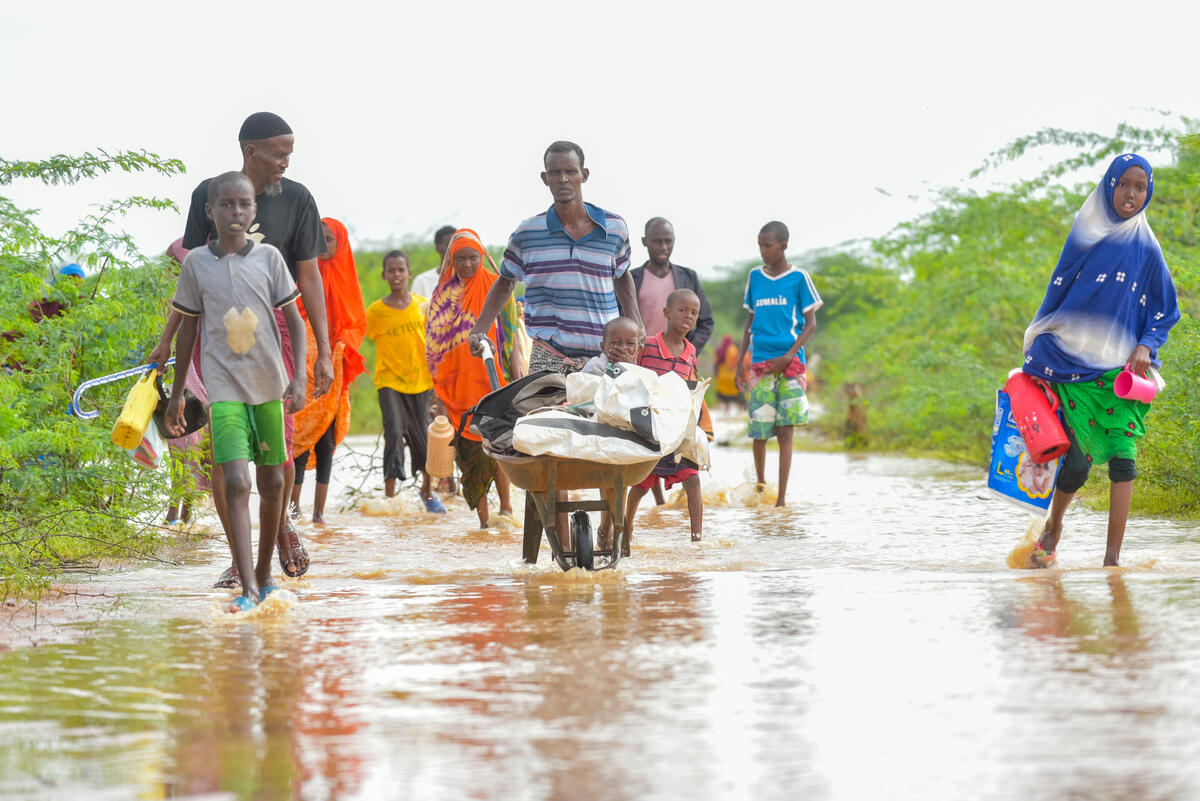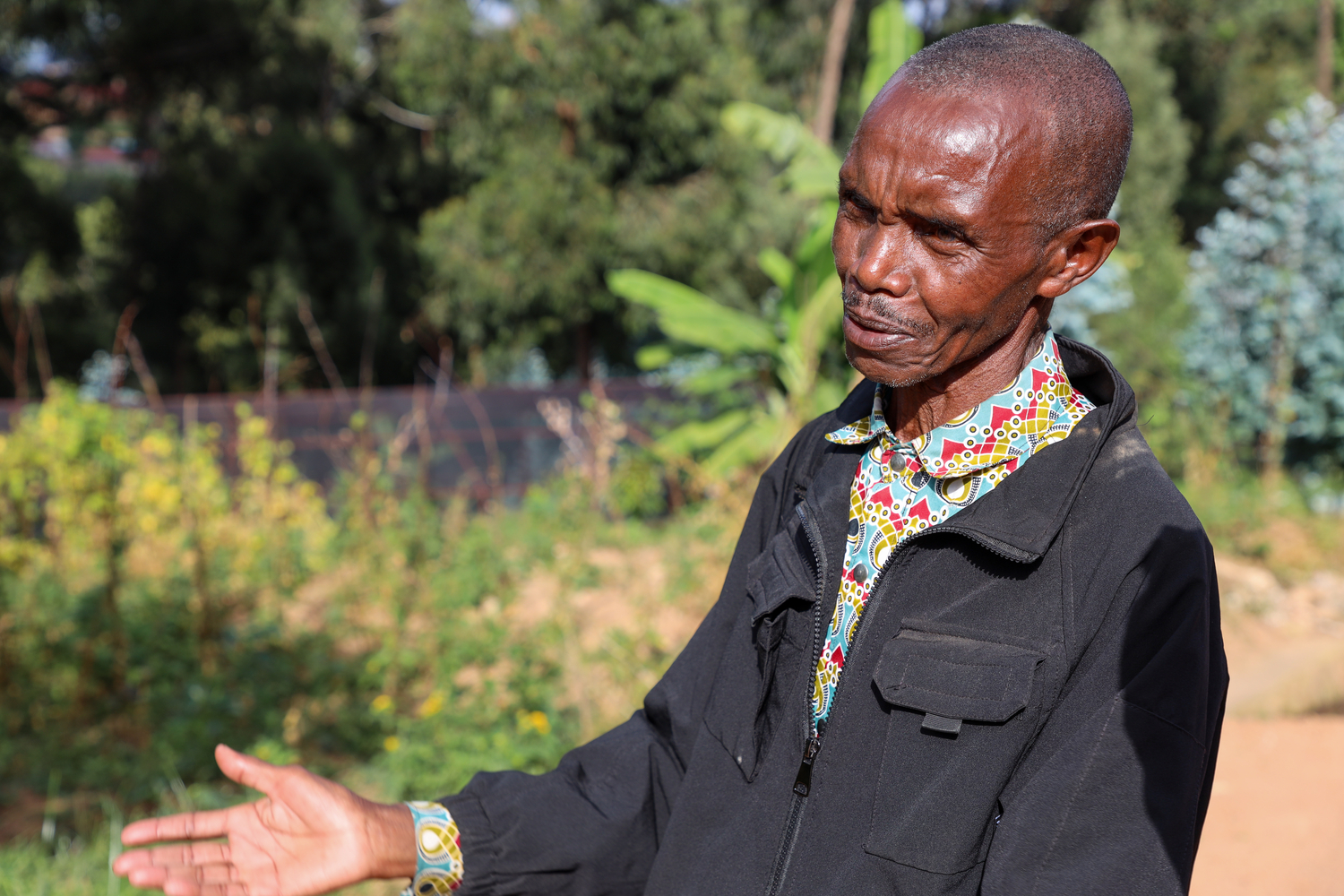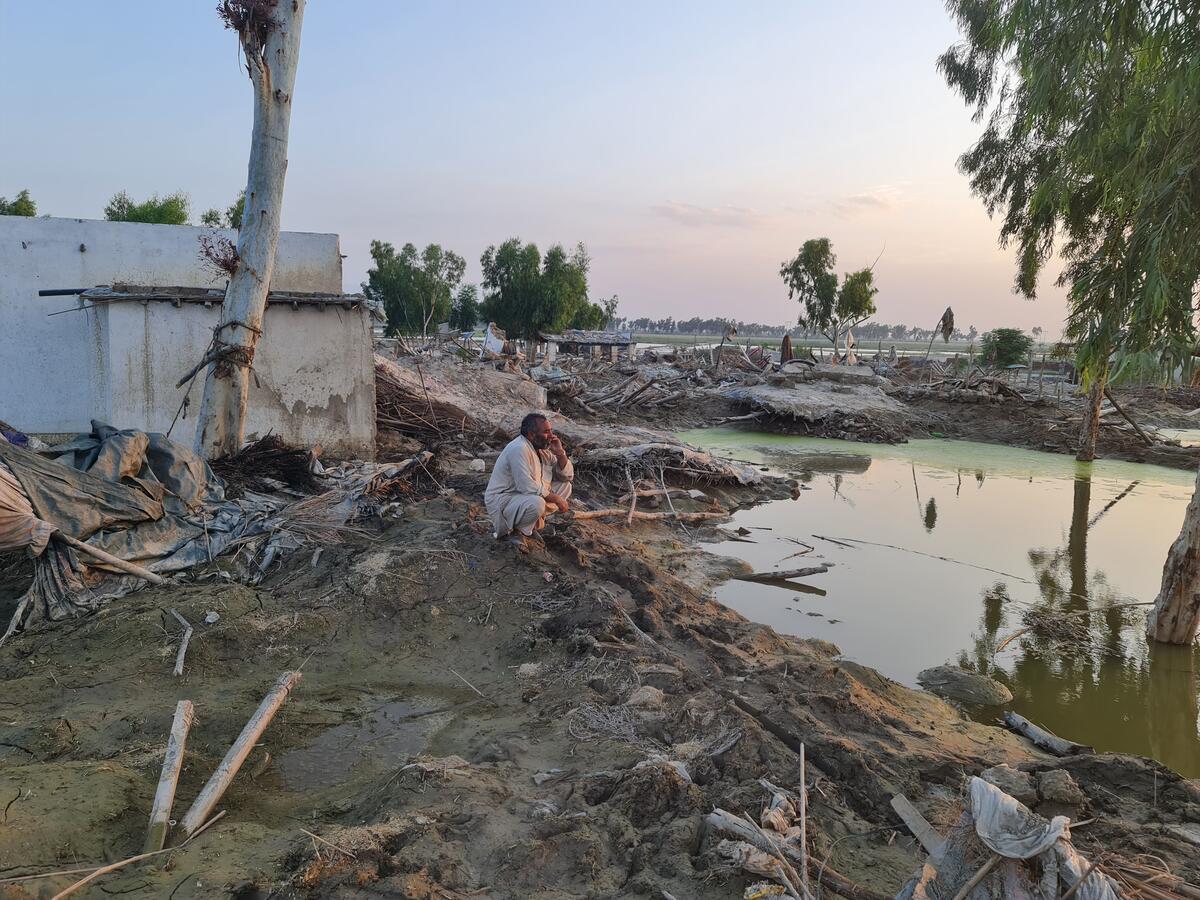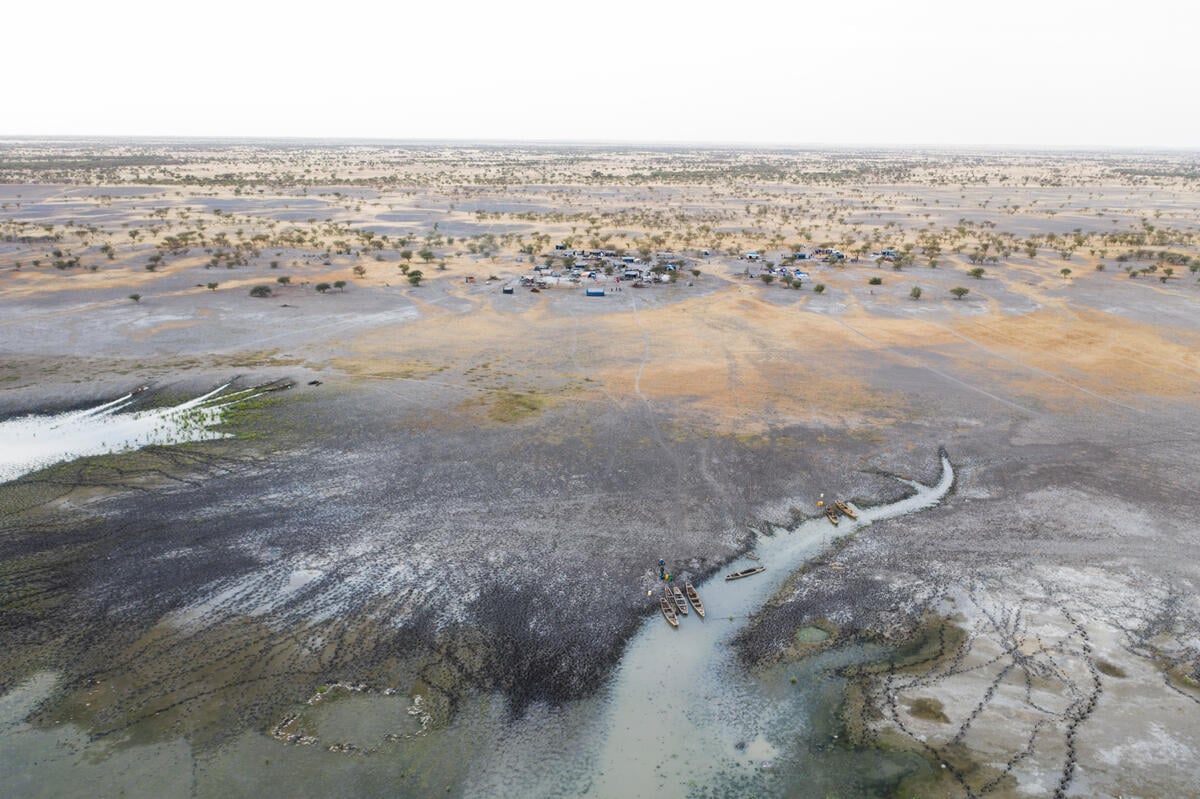Climate change drives people into harm's way, says UN refugee chief
Climate change drives people into harm's way, says UN refugee chief
A new report based on scores of personal testimonies from refugees in Eastern Africa finds that climate change can make people more vulnerable and can also play a part in driving them into areas of conflict and ultimately across borders and into exile.
UN High Commissioner for Refugees António Guterres introduced the report, "Climate Change, Vulnerability and Human Mobility," while attending the Rio+20 summit on sustainable development. It was published by UNHCR and the United Nations University with support of the London School of Economics and Bonn University.
"This report confirms what we have been hearing for years from refugees. They did everything they could to stay at home, but when their last crops failed, their livestock died, they had no option but to move; movement which often led them into greater harm's way," said Guterres.
The study, based on discussions with around 150 refugees and internally displaced people in Ethiopia and Uganda in 2011, asked questions aimed at understanding to what extent climate change had contributed to their flight from their homes, and eventually their countries. Most of those interviewed were farmers and pastoralists from Eritrea, Somalia and eastern Sudan.
"The report highlights how important it is to understand the real experiences of vulnerable people with environmental stressors today" said Konrad Osterwalder, Rector of the United Nations University, which helped to design the research methods and implemented the fieldwork together with Bonn University, London School of Economics and UNHCR.
Most refugees reported that leaving their homes was a last resort and their first displacement was temporary and to an area close to home. The majority fled their countries after the areas they moved to were affected by insecurity or a lethal combination of violence and drought. Cross-border movement, as a direct response to climate change, was exceptional.
According to the report, many refugees described disrupted rainfall patterns in the past decade, with longer and more severe droughts than in previous years. None cited these negative shifts in weather as a direct catalyst for violent conflict, although some spoke about the scarcity of food and crops after severe drought as exacerbating pre-existing conflicts, persecution and repression.
"I am convinced that climate change will increasingly be a driver in worsening displacement crises in the world. It is very important for the world to come together to respond to this challenge," said Guterres.
While most people displaced solely as a result of extreme weather conditions stay within their national borders, those that cross international borders are not necessarily covered by the 1951 UN Refugee Convention.
The Nansen Initiative, due to be formally launched in October 2012 by Norway and Switzerland, with the support of UNHCR and the Norwegian Refugee Council, aims to address this legal and protection gap for people displaced across borders owing to environmental change and extreme weather events.


